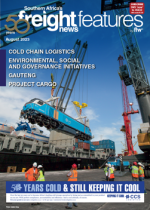In Africa, logistics infrastructure challenges have been no secret, making the transportation of project cargo costly, slow, and sometimes a perilous endeavour.The project sector faces a host of regulations, procedures, legislation and policies unique to each individual country. As the region makes strides towards progress, success in the African project sector hinges on the need to develop extensive knowledge and expertise to navigate these diverse landscapes, says Colin Charnock, group CEO of Trans Global Projects.“Africa is a vast continent with many nations, each quite different from the other. In contrast, Europe, another continent with numerous nations, enjoys a greater sense of alignment and cohesion among its diverse countries,” he told Freight News. “In Africa, the diversity extends beyond just cultural and geographical aspects; it equally applies to logistics. A project logistics provider might choose to specialise in sub-Sahara, the Maghreb, West Africa, or East Africa individually, given the substantial differences in infrastructure and local customs and practices, but it is a tall order to specialise in the whole continent.”Charnock said building up knowledge, skill and expertise in specific countries and regions was critical for success as a logistics service provider. “If one looks at Nigeria, for example, we have built a Centre of Expertise in one of our offices in Europe that is the font of all our group knowledge relative to project logistics in that country. Members of this team are experienced in the special requirements of transporting project cargo to and within Nigeria and are able to advise other group companies on the complex issues and challenges involved, to the ultimate benefit of our clients.”He highlights that project activity will consistently remain in high demand in Africa, owing to the continent's abundant resources. Additionally, the majority of countries are still in the developmental phase, which further augments opportunities for growth within the project sector.

